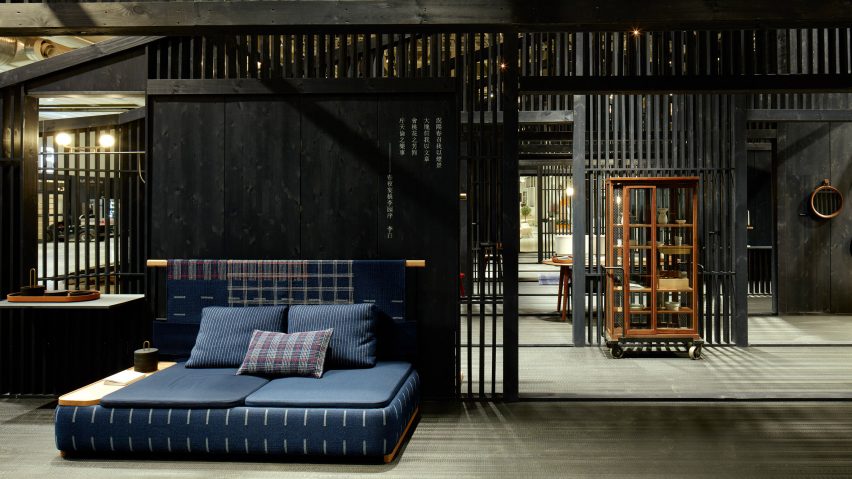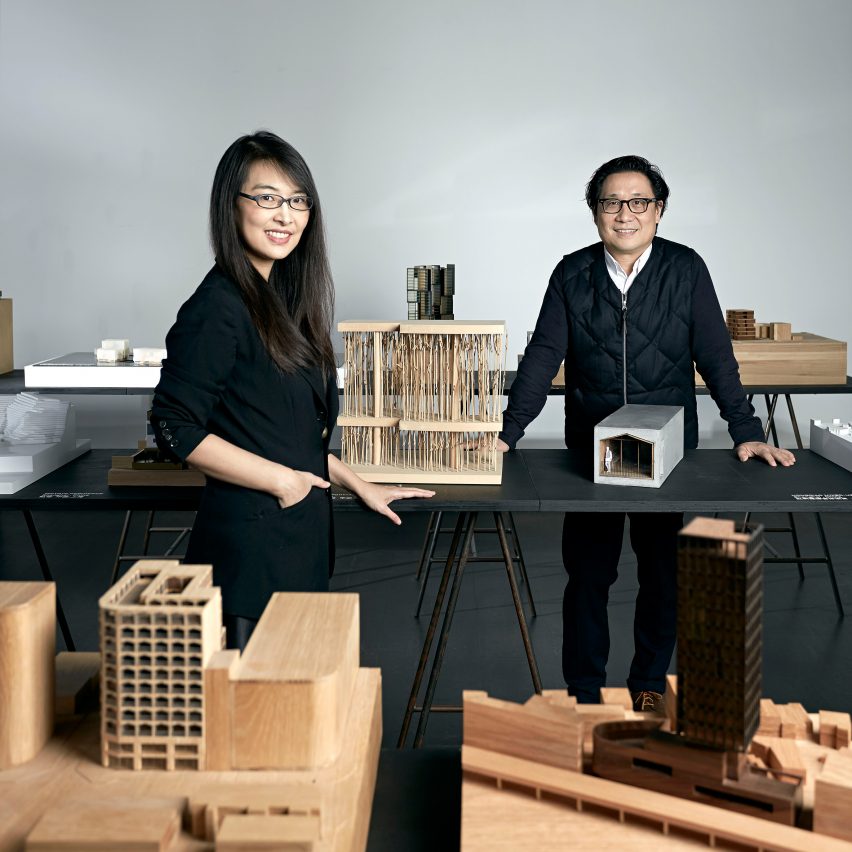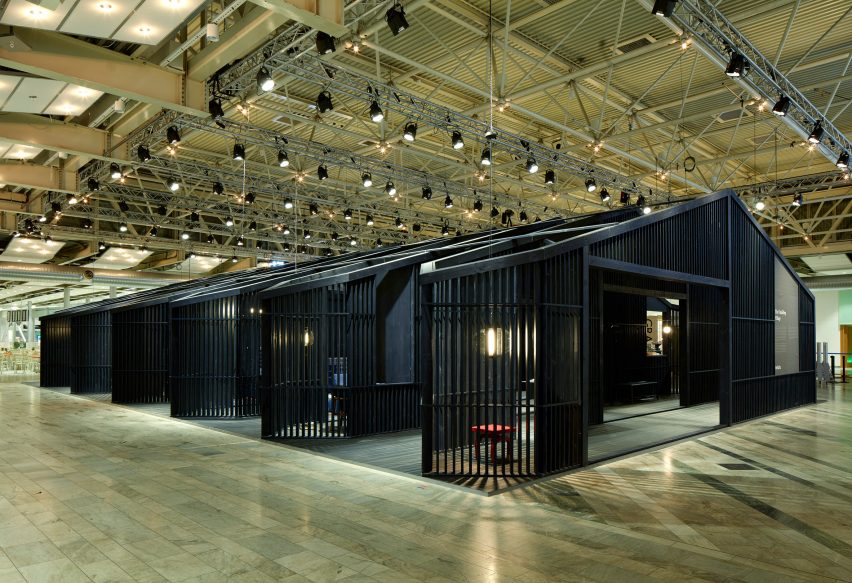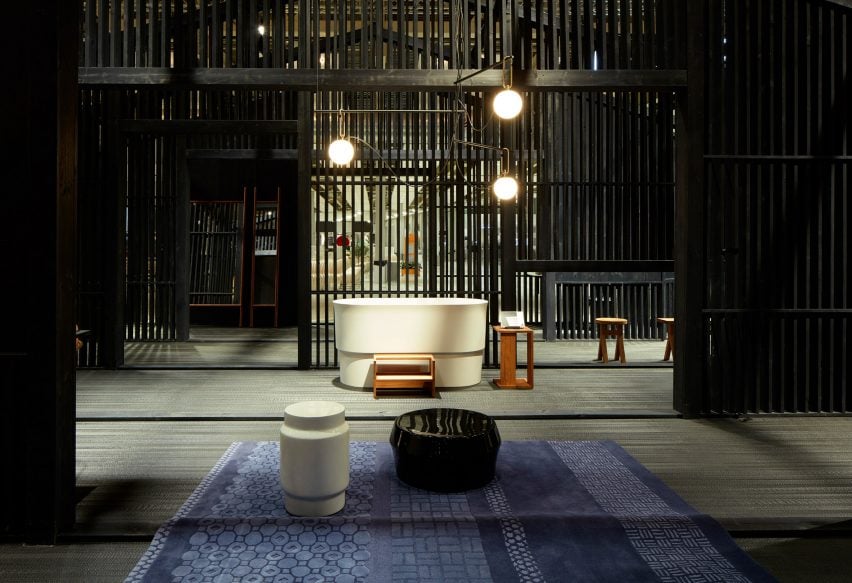
Neri&Hu angry over "abysmal" build quality at Stockholm Furniture Fair
Stockholm Furniture Fair guests of honour Lyndon Neri and Rossana Hu have revealed details of their fight to improve the quality of their installation at the fair.
The Neri&Hu founders said they were "pissed" at the "abysmal" standard of workmanship on the timber installation they designed as the centrepiece for the fair, currently on show in the Swedish capital as part of Stockholm Design Week.
Duo told Swedish newspaper build was "not so good"
The Shanghai duo said they expected the timber construction to be better in Scandinavia, but found a rushed result more akin to production associated with their home country.
They revealed their disappointment in an interview with Swedish newspaper Dagens Nyheter.

"We first got pretty upset yesterday when we came here and saw that this construction was not so good," Neri told the publication.
"We came from China and thought it would be built better in Scandinavia, but then we realised that when you only get four or five days to construct a building, you have also created Chinese production conditions."
Installation comprises a series of connected rows
Neri&Hu were invited to design the main exhibition as this year's guest of honour at Stockholm Furniture Fair 2019, held at the Stockholmsmassan convention centre in the Swedish capital.
Called The Unfolding Village, their exhibit features a long structure made from locally sourced timber that is based on the narrow alleyways found in many Chinese villages.
It takes the form of an abstracted pitched roof and is constructed from vertical slats of blackened timber spaced evenly apart.

Once inside, the visitor follows a continuous winding alleyway through a series of connected rows that together form a "village". The narrow cul-de-sacs between the rows showcase products designed by Neri&Hu.
The design is intended to encourage visitors to the fair to gossip and eavesdrop, behaviour common to clan-based village life, and at the same time to draw attention to the issue of disappearing villages and village culture in China.
Construction was still underway day before opening
Neri and Hu told Dagens Nyheter that their concerns were raised when they arrived on Sunday 3 February – the day before the fair's opening. Due to the fairly intricate design, they were worried that the build would have to be rushed to finish in time.
"What determines the quality of construction is really not so much if the building takes place in the east or in the west, but how much time you get to build," Neri told Dagens Nyheter.
The architect repeated his concerns while speaking on a panel discussion at the fair, describing the construction quality as "abysmal" and saying the duo thought about walking away from the project. "We were really pissed," he said.
Adjustments were made to satisfy architects
However a spokesperson for the fair has dismissed the claims. She insisted that Neri and Hu arrived on Saturday rather than Sunday, and that everyone was happy with the results by the time the fair opened.
"Neri&Hu arrived on Saturday when we were still building the exhibition, so the installation was not yet completed when they arrived at the fair," said project area manager Cecilia Nyberg.
"It was four days until the fair should open, so that's why it wasn't ready. So they expressed when they saw it, when it wasn't ready, that they weren't satisfied. But during the Sunday and Monday, we worked together to complete the installation. We understood that they were satisfied when we opened on Tuesday."

Nyberg said she received positive feedback about the installation, which drew favourable comparisons with Nendo's white laser-cut guest of honour installation six years ago. She suggested it was the best guest-of-honour installation the fair had ever had.
"I think it's lovely and I've had contact with a lot of important people in the industry and they think it's the best guest of honour installation we've had," she said.
"Many people said that the Nendo installation in 2013 was fantastic because it was beautiful for the eye, but I now I heard people say this is the best installation. We are very pleased."
Installation explores disappearing villages of China
The Unfolding Village is the result of Neri&Hu's research into the disappearing villages of China. Between 2000 and 2010 urban land in China expanded by 83 per cent, and the urban population grew by 45 per cent.
In the same period, the number of villages fell from 3.7 million to 2.6 million, an average rate of 300 villages lost per day. By 2020, 60 per cent of China's population – approximately 800 million people – will be living in an urban environment.
The Chinese designers explained the design and concept in a talk with Dezeen editor-in-chief Marcus Fairs, which is available to watch in full.